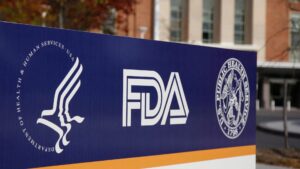Emergency Cancellation of FDA Vaccine Meeting Raises Questions Amid Ongoing Flu Crisis
The world of public health is rife with uncertainties, especially when it pertains to vaccine development and recommendations. The recent cancellation of a pivotal March meeting of the Food and Drug Administration’s (FDA) Vaccines and Related Biological Products Advisory Committee (VRBPAC) has stirred both concern and confusion in the medical community and beyond.
A Significant Meeting Now on Hold
Every March, VRBPAC convenes to select the specific strains of the influenza virus to be included in vaccines for the forthcoming fall and winter seasons. This year’s meeting, originally scheduled for March 13, was abruptly canceled, leaving stakeholders without clear guidance. Panel member Dr. Paul Offit reported receiving an email notification late on Wednesday, stating the meeting’s cancellation without offering any rationale or indication of a possible reschedule. Dr. Offit voiced his concerns on CNBC, questioning who authorized the cancellation and whether manufacturers might shift their focus to recommendations from the World Health Organization (WHO) for vaccine strain selection.
The Stakes Are High
This development comes during a particularly harsh flu season, which the CDC estimates has resulted in up to 910,000 hospitalizations since October. Such numbers indicate that this flu season could be among the worst we’ve witnessed in over a decade, prompting a pressing need for effective vaccine recommendations.
Moreover, the ongoing public health landscape is becoming increasingly complex with the newly appointed Health and Human Services Secretary Robert F. Kennedy Jr. His controversial history as a vaccine skeptic raises concerns about potential shifts in vaccination policies that could directly impact immunization efforts across the nation. Recently, Kennedy announced plans to review the childhood vaccination schedule—a move that contrasts his previous commitments to maintain continuity in immunization protocols.
Impact on Public Health Policy
The vacuum left by the canceled VRBPAC meeting may lead to significant ramifications. The Advisory Committee on Immunization Practices (ACIP), advising the CDC, also postponed a separate meeting intended to encourage public commentary. Both cancellations point to a troubling trend of indecision at a time when transparency and decisive action are critical for public health.
In addition, the Trump administration is reportedly assessing the future of funding for Moderna’s bird flu vaccine amid a record-breaking outbreak that has already affected various livestock sectors. The ongoing crisis, characterized by a surge in bird flu cases, has provoked not just health concerns but economic impacts as rising egg prices ripple through the market.
Our Commitment at Extreme Investor Network
At Extreme Investor Network, we recognize the importance of timely and accurate information in navigating today’s complex public health dynamics. For investors and stakeholders in the healthcare and biotechnology sector, the turbulence within vaccine policy and the accompanying regulatory environment can present both challenges and opportunities. We stand committed to providing our readers with exclusive insights and analyses that assist in making informed decisions amidst this uncertainty.
Stay tuned as we continue to monitor these developments, providing strategic advice and updates that matter to you. Ensuring a holistic understanding of the intricate relationship between public health policy and investment opportunities is our priority, and we invite you to be part of the conversation. Join us at Extreme Investor Network as we delve deeper into the evolving landscape of public health and its implications for the future.

